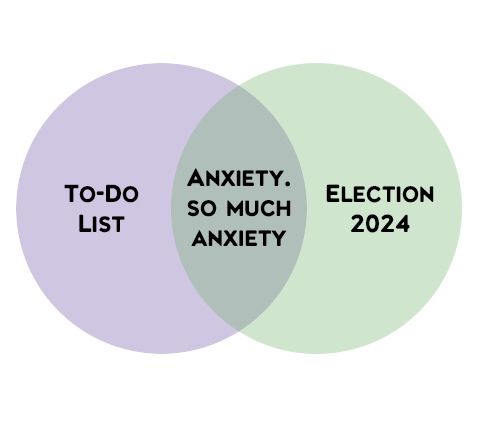Dear Congregation Beth Israel members and friends,
As I write these words, the election is a scant week away. I’ve heard from many of you that it’s hard to think about much else right now. This election feels momentous and maybe even frightening in a way we’ve never experienced before.

I read in The Guardian recently that a majority of Americans fear that our democracy is at risk (though we may not agree on what precisely is placing us in that state). And this time, many of us feel braced not only against the possibility that our preferred candidate won’t win, but also against the fear that others will refuse to accept the results, whatever they are.
“So Rabbi, what does Judaism have to say about all of this?” My answer is: plenty.
As the Reform movement notes, many of our sages have argued that voting is not only a good idea but actually a mitzvah, incumbent on us by virtue of our covenant with God. In Pirkei Avot, a collection of Jewish wisdom written down around the year 200, we read, “Do not separate yourself from the community.” On the contrary, our tradition teaches us to engage with community, and that includes the secular community of which we are a part.
As a tradition, Judaism is fundamentally communitarian. (Think of how often a minyan is required for saying certain prayers or engaging in certain activities – our sages’ way of ensuring that we aren’t trying to “do Jewish” alone.) It’s our job to concern ourselves with the needs and welfare of everyone, and that requires us to be civically engaged.
For me the bigger question is: what do we do with our free-floating anxiety about this election and what may follow?
Right now I’m reading a book by Rabbi Adina Allen, founder of the Jewish Studio Project. Her book is called The Place of All Possibility. It’s about Torah and creativity, and about the amazing insights that can unfold in us when we connect with Torah through our innate creativity. I’m considering teaching a class informed by this book later in this Jewish year, so stay tuned for more about that! Anyway: in one of the early chapters, she cites the teaching that says that in order to be open to Torah we are meant to be hefker, “ownerless.” And then she says this:
Who or what “owns” me? What ideas dominate my thinking? What habits foreclose new ways of seeing, feeling, or being? In making ourselves hefker, we are renouncing, or disentangling, ourselves from whatever “ownership” has claimed us – advertising, dogma, ideology, our own self-conception – and returning to a state of freedom and openness.
Reading that passage in the week before the election, I thought: what ideas dominate my thinking at this time? That’s easy to answer: election worries.
It is hard to drag our minds away from worry about what might go wrong and what the implications might be for us as Jews. And when those ideas dominate our thinking, they can crowd out everything else – including the voices of Torah, Jewish tradition, creative inspiration, and even our friends and our loved ones.
I invite us to take a long deep breath, and on the exhale, consciously let go of those recurring thoughts that might seem to “own” our minds these days. I imagine them like autumn leaves drifting away in a gust of wind. As they float on the air currents, I mentally thank them for trying to protect me (that is most often what anxiety is trying to do – awaken us to a danger, whether real or imagined) and send them on their way.
We don’t know what the coming election will bring. But here are some things I do know:
We can always be there for each other, and for those who are vulnerable.
We can always do something to bring about a world of greater justice and peace.
Shabbat will still come every seventh day, offering an opportunity for us to rest our souls.
We will still need each other in order to make community.
And here at CBI we will still have the stunning Al & Frances Small Memorial Labyrinth for contemplative walking, and the giant willow tree in our backyard if you want to commune with nature, and both of those are restorative for our souls, too. (I know, because I’ve been doing those things pretty much every day lately.) Whatever comes after this November, we’ll still be a community, and we’ll face it together.
Blessings to all,
— Rabbi Rachel





